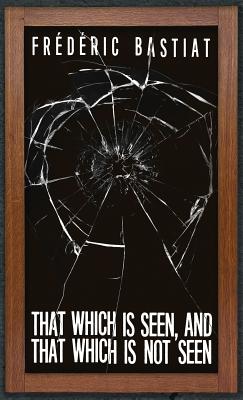That Which is Seen, and That Which is Not Seen: Bastiat and the Broken Window (1853)

That Which is Seen, and That Which is Not Seen: Bastiat and the Broken Window (1853)
Frédéric Bastiat is well known for his 'broken window' parable. While other economists were looking at how maintaining a standing army, launching public works projects, and even destroying things, as a way to spur the economy, Bastiat showed in this classic economics essay just how wrong this thinking is -- or at least, how it is incomplete. 'What is seen' is plain enough: the broken window. 'What is not seen' requires some imagination and curiosity, but is nonetheless real: the things not purchased because the money had to be used for the window, and other unintended consequences.
This is the original 1853 English translation out of the original French, as found in Bastiat's "Essays on Political Economy."
PRP: 157.08 Lei
Acesta este Pretul Recomandat de Producator. Pretul de vanzare al produsului este afisat mai jos.
125.66Lei
125.66Lei
157.08 LeiLivrare in 2-4 saptamani
Descrierea produsului
Frédéric Bastiat is well known for his 'broken window' parable. While other economists were looking at how maintaining a standing army, launching public works projects, and even destroying things, as a way to spur the economy, Bastiat showed in this classic economics essay just how wrong this thinking is -- or at least, how it is incomplete. 'What is seen' is plain enough: the broken window. 'What is not seen' requires some imagination and curiosity, but is nonetheless real: the things not purchased because the money had to be used for the window, and other unintended consequences.
This is the original 1853 English translation out of the original French, as found in Bastiat's "Essays on Political Economy."
Detaliile produsului








